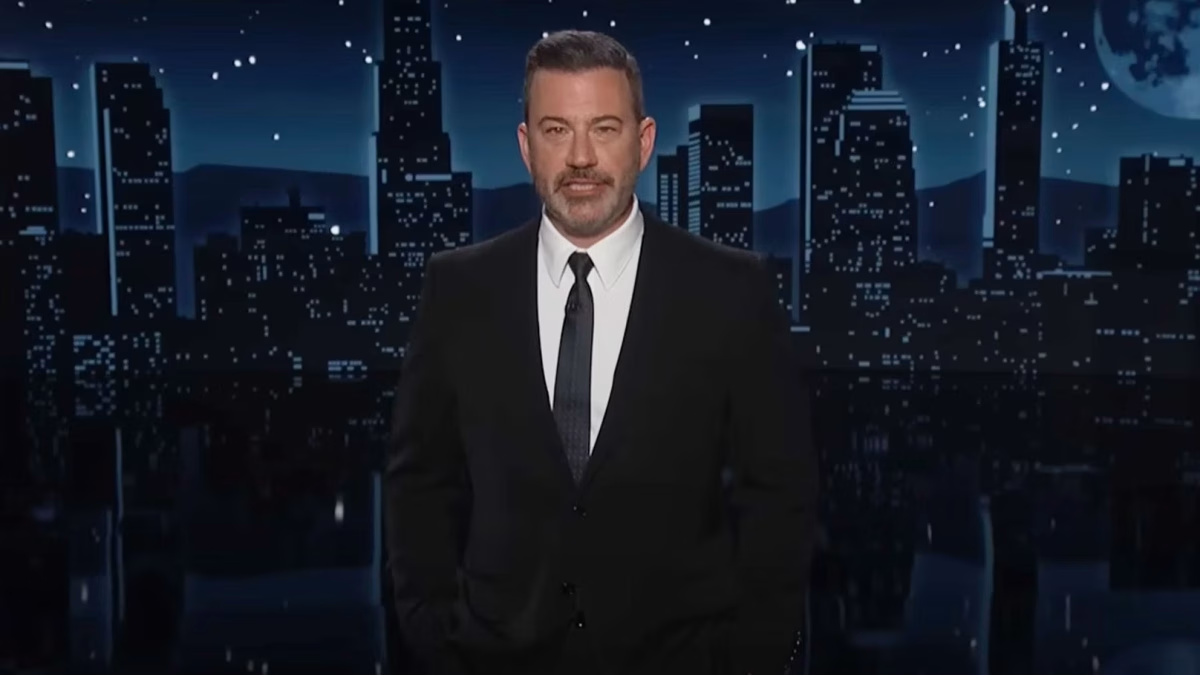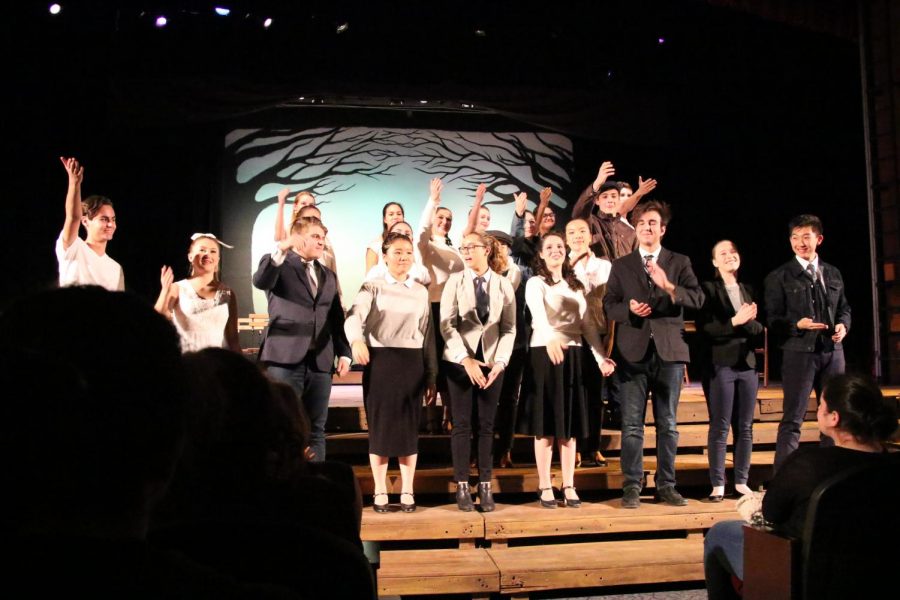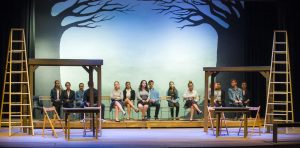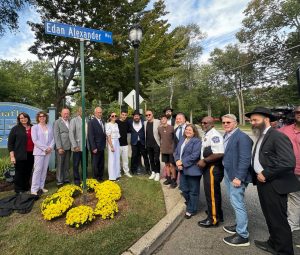The Ignorance of Living: A Review of Our Town
The entire cast of Our Town during bows
November 22, 2017
I walked into the Collins and Tall auditorium on Friday night with low expectations. I thought it would be an hour and a half of a vanilla story. I left the Collins and Tall auditorium teary eyed and thoroughly moved by not only the cast but the story of Our Town. The show started ten minutes early with Lizzy Palo (’18), who played the Stage Manager, checking up on her show to make sure everything was ready for the night’s performance. I was truly impressed with her ability to retain the extensive monologues her character had, and they way she turned a non-characterized character into something so distinct and memorable. She shows us around the town of Grover’s Corner, and explains how the entire auditorium will be used through small things like Anya Kasubhai (’20) biking down the aisles, or Gili Zaifman (’19) leading her horse Bessy across the auditorium to deliver milk. Some other big standouts were Amanda Pyun (’18), who played Stella Simson, and was able to make me cry from laughter in act one and have an existential crisis by act three. With her movements alluding to being the drunk church organist, and clever mannerisms to follow, she truly stole the show in act one. Along with Pyun’s hilarious delivery, the actual singing that followed added another fun element to the whole experience. It didn’t feel like a cheesy gimmick but more as another engaging element to the story. And Zaifman’s entering the crowd and encouraging the audience to join in their gospel singing made the story all the more fun.
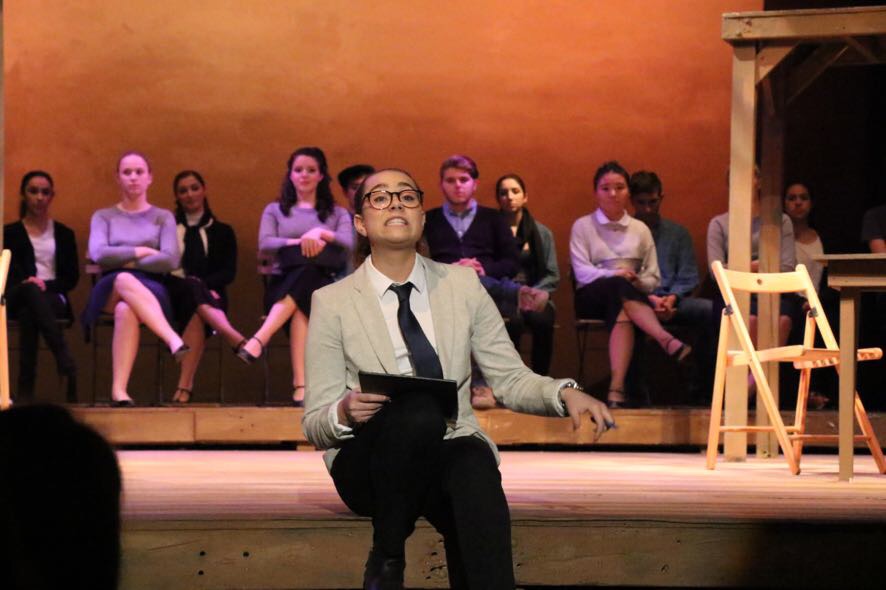
One interesting element of the blocking of the show was the fact the whole cast was never not on stage. When someone wasn’t delivering lines, they were at the back of the stage sitting and observing. When I first noted that element, I thought it would be awkward and uncomfortable but, to my surprise, that element added even more to the story. While sitting in the chairs, each actor was able to maintain his or her character onstage. For example, while delivering lines Omer Raz (’20), who played Dr. Gibbs, was a staid and stern man with traditional values constantly scrutinizing his son so that he could be the best man possible. While sitting backstage, he constantly seemed to be critiquing what was happening, and he maintained a very proffesional stature similar to how he spoke. Likewise, Naomi Friedman (’18) conveyed character consistently. Friedman played Rebecca Gibbs, sister to George Gibbs, and whenever her brother would deliver his lines, you could see a typical brother-sister relationship, where she was constantly judging him. Besides keeping character back in the seats, there were small Easter eggs in the order in which characters sat, alluding to ideas seen spoken on stage. Reilly Wilmit (’18), who played Mrs. Gibbs, was never sitting next to her husband Dr. Gibbs, conveying marital issues.
Abigail Pomeranz (’19), who played Mrs. Soames, was another scene stealer I noticed. During the (as she described) lovely wedding of George Gibbs and Emily Webb, played by Andy Chang (’18) and Ariel Fromm (’18), there were occasional interruptions by Pomeranz playing the perfect yenta, screaming about how lovely the wedding was. Along with Pomeranz’s caricature, Friedman kicked off the singing of the wedding. Her acapella rendition of the song “In My Life,” by Lennon and McCartney, sounded really good and helped tie the happiness of the whole scene together.
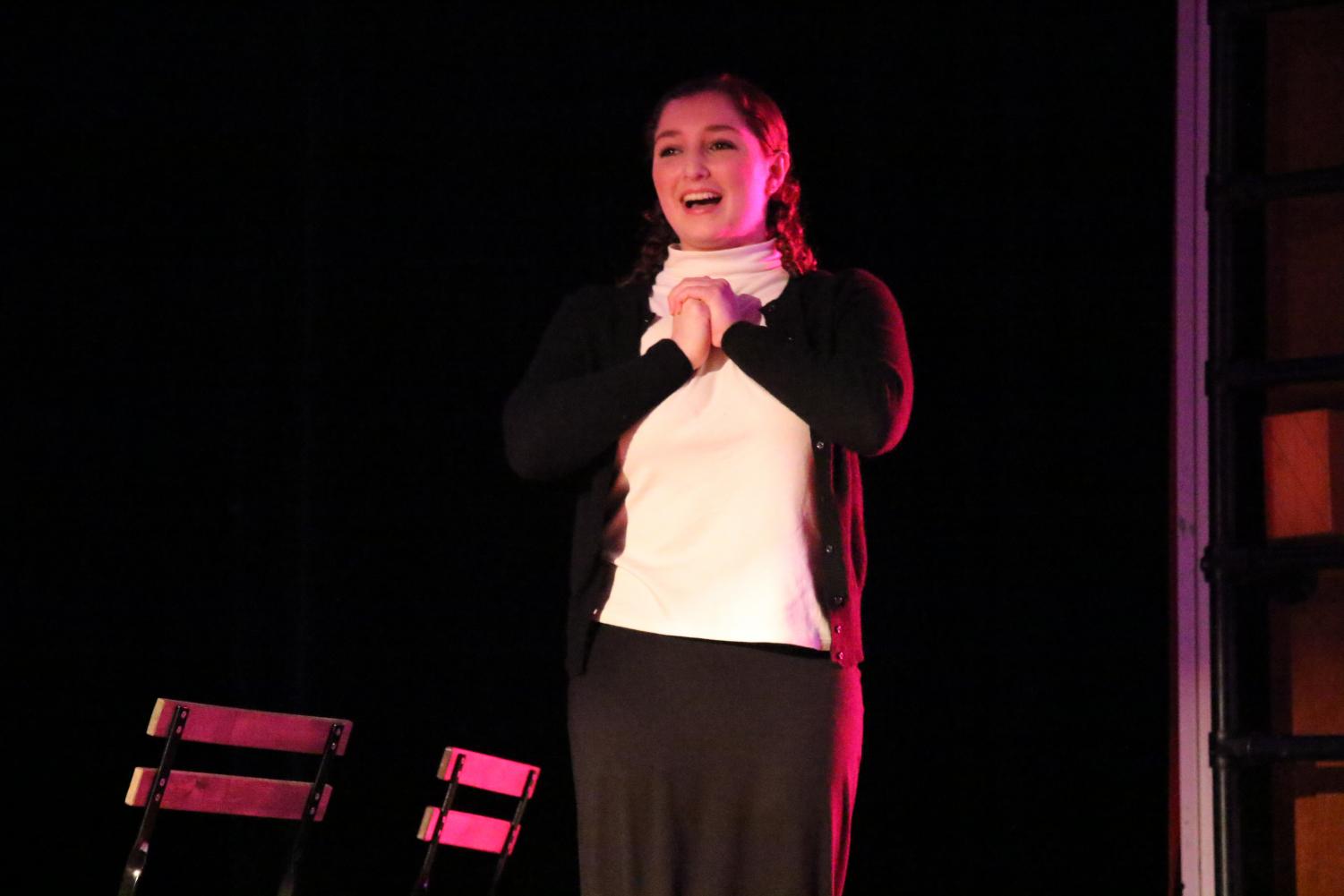
When the third act of the show came around, I felt a little confused. From what I knew about the show, there was supposed to be this shocking twist ending with an incredibly deep meaning. What I saw on stage I was not prepared for in the slightest bit. The act started with half of the cast sitting in an inverted pyramid, all wearing white tops. There was an empty seat next to Mrs. Gibbs, indicating some sort of mystery. The scene continued when Marina Hoffmann (’19) and Anthony Parmelee (’19), two friends, Sam Craig and Joe Stoddard, met up in a graveyard and talked about how Hoffman’s cousin was about to be buried. Hoffman also revealed that Mrs. Gibbs was her in-law, leading the audience to assume that Emily Webb had passed. When set in her grave, Emily started talking with everyone else buried, conversing about what happened while they were dead. Emily found out she can relive her memories but as if she were watching them and not actually living them. Although advised otherwise, Emily watched her 12th birthday and realized how blind everyone was to what actually happened, and she decided to return to her grave. This, to me, was the turning point of the play.
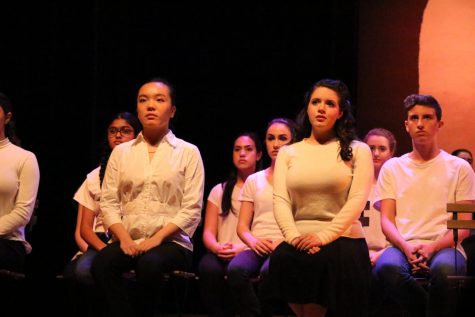
This is when the true message of the play came through. Fromm, somehow, made herself cry on command, which honestly made me tear up a bit. Her emotions truly came out, and even if Fromm wasn’t feeling the same way as her character, you could feel how Emily felt. It was truly palpable. If you did not get to see Our Town, you missed something spectacular.
Photos by Alan Wilmit




























































